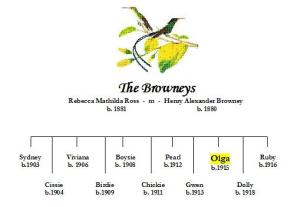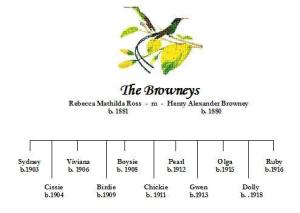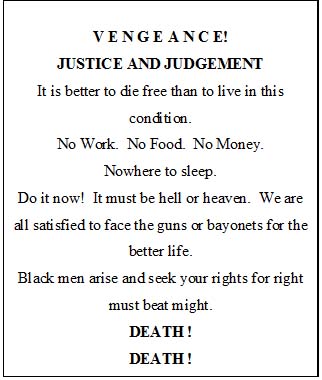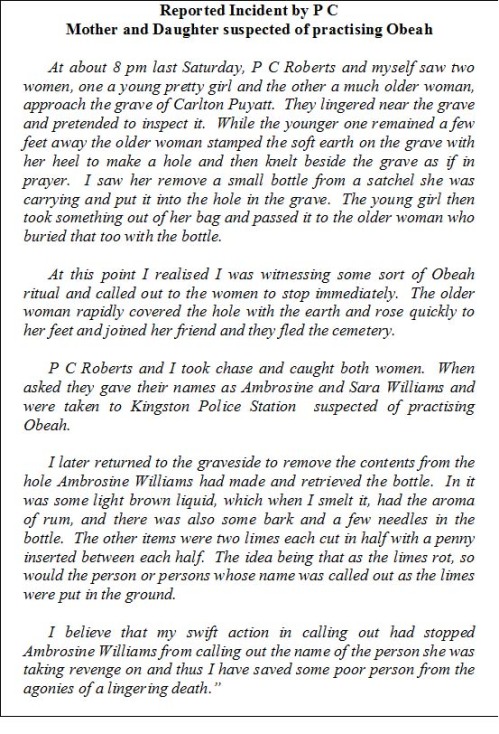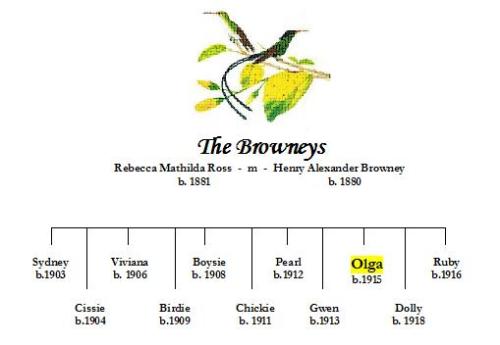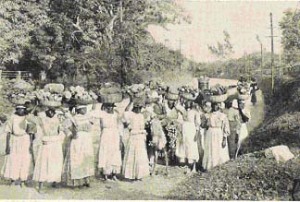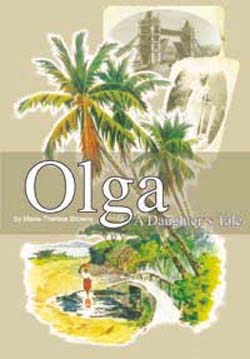<—Olga, Nursing & a Declaration of War
Olga’s Diary (Continued)
Life goes on: A strange thing happened this morning, a gentleman called out.
“Nurse”
It took a few moments before I realized he meant me. It was a bit of a shock, but a very pleasant one.
Sister Tutor says even in wartime there has to be a routine in hospital. The day always starts the same with Sister re-arranging the flowers and potted plants which had been taken out of the ward the night before and put in the sluice room because Matron says they give off poisonous carbon monoxide during the night. It’s a hospital superstition, too, that no lilies are allowed in the wards because they’re considered to be unlucky and you never have red and white flowers in the same vase either because that means death.
I have to clean each marble-topped locker next to the patient’s bed and wipe out the fruit bowl that stands on it. Then the beds are pulled away from the wall for a maid to sweep the floor and which Matron likes highly polished, which is fine if you are wearing rubber sole shoes, but for the patients wearing slippers it can be a difficult.
I was helping an old man to the toilet yesterday morning and he was fairly steady on his feet to start with, but suddenly he slipped, lost his balance and ended up on his bottom and me with him. The other patients had a good laugh at our expense and I thought it was funny too, but Sister Tutor was furious with me.
Everything and everyone has to be neat and tidy ready for Matron’s mid morning inspection. The staff, including the doctors, have to line up in a row and woe betide us if the ward isn’t up to Matron’s standard. She expects us to know all the patient’s names and their medical condition.
When war was first declared I was frightened, especially because normal every day things changed. The cinema and theatres closed, and that upset me, because I’m crazy about films and I used to go every week with Joanne, but now we have to find other forms of entertainment.
Moores discovered a pub near the hospital and she and some of the other student nurses go there quite a bit, but I don’t drink, so I haven’t been there yet. Moores and I are working on the same ward at the moment, which is fun, and when we’re doing beds together we get the chance to talk and I hear all about what happened in the pub the night before.
This morning we were changing the bottom sheet of a bed, with the patient still in it, and Moores was telling me about this Canadian soldier who said he can get her some French champagne and silk stockings. Each time we moved the patient he broke a little wind and at first we ignored him and carried on chatting, but then he did it again and we started to laugh and couldn’t stop and what’s more neither could the patient, which made him break wind louder and more often and then all the other patients joined in and they didn’t even know what they were laughing about.
But it was a wonderful moment especially as there was no one around to tell us off. You need little moments like that because it helps to take away the tension and worry for a little bit, and it’s amazing how much better you feel afterwards.
Moores is such fun, you know, she says to me
“Olga, eat life or life eats you”.
So I’ve decided to have some fun and go out with her tonight, but I won’t tell Joanne because she thinks Moores is a bad influence on me. Joanne says the first year examination is not easy and I should be studying hard for it.
The Rose Public House: I’ve never been inside a public house before but, apart from being very smoky, it was really quite nice. Moores always finds someone to talk to but I was happy to sit quietly drinking my ginger beer. For the first time since the war started I felt safe there, perhaps, because it’s used by soldiers and watching people enjoy themselves, laughing and having a good time, makes you forget about how worried you are about the war and exams.
I never go out on my own at night because it’s so dark with all the street lights turned off, but at least the lamp posts are painted white so we don’t bump into them and the edges of the pavements have been painted white too. Moores, Ethel and I each carry a little torch which we have to shine downwards onto the pavement. But we had a nasty shock on the way home from a night out.
We were passing a doorway when Ethel let out a scream. We looked up and there was a woman’s face lit up in the doorway. She had a little torch pinned to her coat so that the light shone on her face and she was wearing a fox fur around her neck. The fox’s eyes were glinting in the light, its tiny teeth bared in a snarl and it had little paws and a bushy tail that hung loose. I’m not surprised Ethel screamed, it was a frightening sight. Moores said the woman was a prostitute waiting for clients. Moores knows about everything, you know.
We’re being blitzed: It has been difficult for me to write because we have been so busy in the hospital and to be truthful I haven’t felt like it.
Everything has changed.
Germany’s planes have been dropping bombs on London day and night and the devastation is awful. Hundreds of people have been killed, thousands injured and hundreds of thousands are without homes. The bombing raids can last for hours without any let up. But, most of all I dread it when the Germans bomb at night, which they do frequently. Every part of London is being bombed including here in Camberwell.
A landmine exploded nearby and several homes were blown up, many of the casualties were brought here. There seem to be fires burning somewhere in London day and night. Other cities are being bombed as well but the Germans certainly seem determined to destroy London.
I start to shake when I hear the air raid siren sound and even when the all clear is given I’m too frightened to go out. I’ve been keeping away from Moores and Ethel, using study as an excuse to stay in, because I don’t want them to think I’m a coward, but I’m ashamed of myself too, because the people who are homeless and have lost everything still have their fighting spirit and say they won’t be beaten by Germany.
Joanne came to see me at St Giles during a break between bombings and made me go for a long walk with her. I felt much better afterwards, especially, when she told me that she was afraid too.
“Olga, we must do our job and put our trust in God” she said.
We talked about our families and wondered if they knew how bad things were here in London. The letters Joanne receives are heavily censored too and so we think the ones we write home are as well. It’s heartbreaking; I’m desperate to receive news from Mammie and the family and when I do get a letter, line after line has been crossed out with black ink so I’m left with hardly anything to read. And you feel as if someone is spying on you. The censors know more about what’s going on with my family than I do.
Joanne says “We should be grateful, at least they open the letters carefully and don’t tear them.”
Any day now Joanne’s waiting to hear if she’s passed her final exam so that when the war’s over she can fulfil her dream and go back to Jamaica a qualified nurse.
“And, if you study hard Olga, so will you”
“Who knows, maybe we can work together in Jamaica”. she said
I’ll tell you something Dear Diary, I struck gold when she sat down beside me that day in Regents Park.
<—Olga, Nursing & a Declaration of War
If you enjoyed this post, please consider letting your friends know or leave a comment or subscribing to the feed to have future articles delivered to your feed reader.
